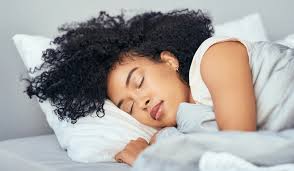Sleep and mental health are deeply interconnected. A good night’s rest is essential not only for physical recovery but also for emotional and psychological well-being. Lack of sleep can worsen mental health conditions, while mental health disorders can interfere with sleep—creating a vicious cycle.
In this article, we’ll explore how sleep impacts mental health, the science behind it, common disorders, and practical strategies to improve both.
The Connection Between Sleep and Mental Health
Sleep is not just about rest—it’s a critical period when your brain consolidates memories, processes emotions, and restores chemical balance.
Key Mental Health Functions of Sleep:
- Regulates mood and emotional reactions
- Supports cognitive function and decision-making
- Helps build stress resilience
- Maintains hormonal balance and neurotransmitter levels
What Happens to the Brain During Sleep?
Sleep is divided into several stages, including REM (Rapid Eye Movement) and non-REM sleep. These stages serve different mental health functions.
REM Sleep and Emotion Regulation
REM sleep plays a major role in:
- Processing emotional experiences
- Consolidating emotional memories
- Reducing emotional reactivity the next day
Deep Sleep and Brain Recovery
Deep sleep is when your brain:
- Flushes out toxins (via the glymphatic system)
- Regenerates neurons
- Restores energy and focus
Mental Health Issues Linked to Poor Sleep
Lack of quality sleep can significantly raise the risk of mental health problems, or worsen existing ones.
1. Anxiety
Sleep deprivation increases activity in the amygdala, the part of the brain that controls fear response. This heightens anxiety and stress.
2. Depression
Poor sleep is both a symptom and a cause of depression. Studies show that insomnia doubles the risk of developing depression.
3. Bipolar Disorder
Irregular sleep patterns can trigger manic or depressive episodes in individuals with bipolar disorder.
4. ADHD
Sleep disturbances are common in children and adults with ADHD, affecting attention, impulse control, and behavior.
5. PTSD
Sleep plays a key role in processing trauma. PTSD sufferers often struggle with nightmares and sleep fragmentation.
How Much Sleep Do You Need?
| Age Group | Recommended Sleep |
|---|---|
| Adults (18–64) | 7–9 hours |
| Teenagers (13–17) | 8–10 hours |
| Children (6–12) | 9–12 hours |
| Seniors (65+) | 7–8 hours |
Consistency and sleep quality are just as important as duration.
Signs Your Mental Health Is Affected by Poor Sleep
- Constant fatigue or low energy
- Increased irritability or mood swings
- Difficulty concentrating or making decisions
- Feelings of sadness, hopelessness, or anxiety
- Sleep paralysis, nightmares, or disrupted REM cycles
How Mental Health Disorders Affect Sleep
Anxiety and Insomnia
Anxious thoughts often prevent people from falling asleep, creating a cycle of worry and fatigue.
Depression and Hypersomnia
Some individuals with depression sleep excessively, but still feel tired and emotionally low.
Stress and Restless Sleep
Stress hormones like cortisol disrupt the body’s natural sleep-wake cycle (circadian rhythm), making restful sleep difficult.
Tips to Improve Sleep and Mental Health
Creating healthy sleep habits (sleep hygiene) can improve both sleep and mental well-being.
1. Stick to a Consistent Schedule
Go to bed and wake up at the same time daily—even on weekends.
2. Limit Screen Time Before Bed
Avoid phones, laptops, and TVs at least 1 hour before sleep to reduce blue light exposure.
3. Create a Calm Sleep Environment
- Use blackout curtains
- Keep room cool and quiet
- Invest in a comfortable mattress and pillow
4. Avoid Caffeine and Heavy Meals Before Bed
Stimulants and late-night eating can disrupt your ability to fall asleep.
5. Practice Relaxation Techniques
Meditation, deep breathing, and gentle yoga can calm the mind and prepare it for rest.
When to Seek Professional Help
If poor sleep is affecting your mental health or daily functioning, consult a:
- Sleep specialist
- Psychologist or psychiatrist
- Primary care physician
They may recommend CBT-I (Cognitive Behavioral Therapy for Insomnia), medications, or sleep studies.
Conclusion
Sleep is not a luxury—it’s a mental health necessity. Without enough rest, your brain struggles to process emotions, manage stress, and stay balanced. Prioritizing sleep is one of the most effective and natural ways to protect and enhance your mental well-being.
By understanding the connection between sleep and mental health, you can make informed changes that positively affect both your body and mind.
FAQs
1. Can poor sleep cause mental illness?
While it may not be the sole cause, poor sleep is a major risk factor for developing or worsening mental health disorders.
2. Is sleeping too much bad for mental health?
Yes. Oversleeping can be a sign of depression or other issues, and may lead to feelings of fatigue and low mood.
3. Can improving sleep treat depression or anxiety?
In many cases, yes. Improving sleep through therapy or lifestyle changes can significantly reduce symptoms of depression and anxiety.
4. What is CBT-I?
CBT-I (Cognitive Behavioral Therapy for Insomnia) is a proven, non-drug treatment that helps people change behaviors and thoughts around sleep.
5. How quickly can sleep improvements affect mental health?
Some people notice benefits within a week or two, while others may take longer. Consistency is key.

